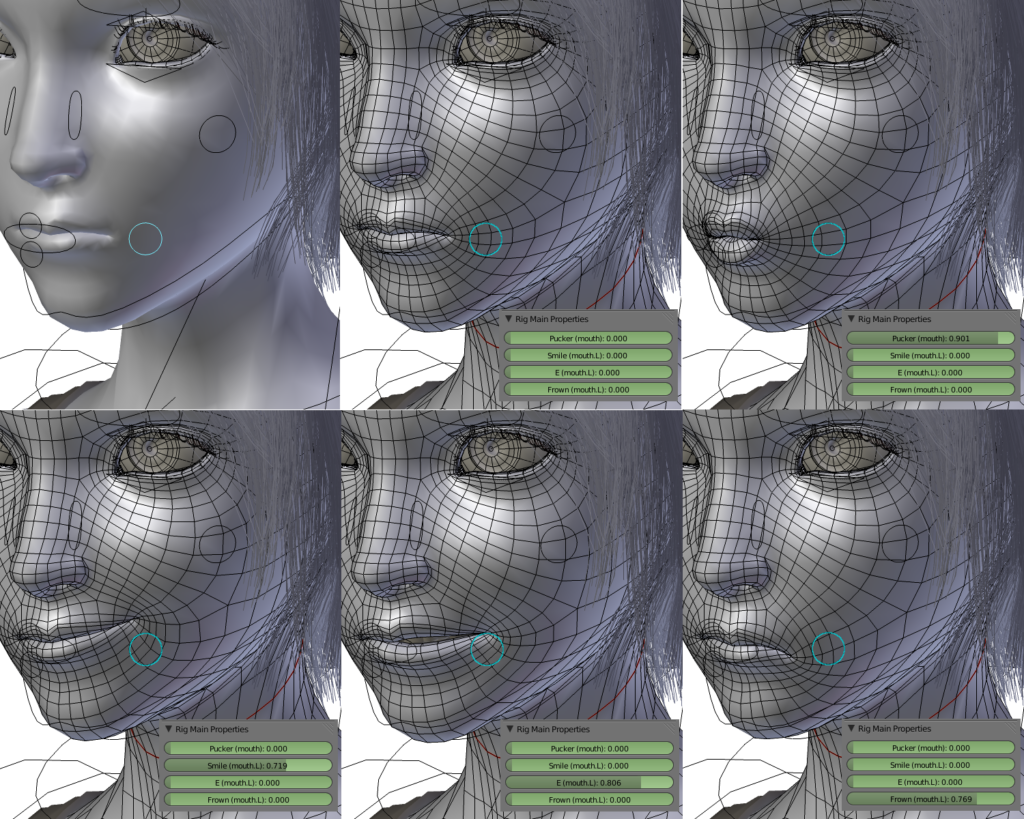Over the past few decades, the video game industry has really come into its own—not only is it the fastest growing entertainment medium in terms of revenue, but has created (and continues to create) job disciplines that never existed previously.
What follows is a sampling of the main roles that go behind the creation of modern titles, each of which support thousands of jobs around the globe. We’ll be taking a look at what each role involves, as well as the salary expectations and career paths (and some of the pros and cons you can expect from the job once you land it.)
Ever wanted to score video game soundtracks for a living? How about engineering the actual consoles themselves? Scroll on as we unpack:
A Career in Gaming: 9 Major Roles

Game Animator
An essential role in just about any production, the game animator draws upon a large skillset of both 2D and 3D techniques to bring characters and models to life within the limits of the game’s framework (and production budget.)
Game Animator Career Path: While it is possible to self-teach animation for video games, the cinematic nature of modern games (particularly triple A titles) usually calls for qualified professionals. In addition, game design school can dramatically accelerate the learning process, since there’s now a huge amount of varying software that must be mastered in order to slot into any design crew seamlessly.
Pros: A lot of job satisfaction when you finally nail that character movement after hours of graft, and it’s a challenging mix of both creativity and technical understanding.
Cons: Nothing is achieved quickly in game animation, and it can sometimes feel like an overwhelming grind (especially in a professional environment when deadlines loom.)
Game Animator Salary Expectations: Once you’ve got between 3-6 years of experience you do expect to have above average salary and will continue increase once you take on a senior animation roles and when heading teams.
Game Audio Engineer
A game’s soundtrack, voice acting, and audio effects can easily make or break a game, and the craft of audio engineering has become far more complex in recent times with the advent of more open-ended gaming experiences.
Game Audio Engineer Career Path: Sound engineering degree preferable, but an audio engineer’s portfolio is everything when it comes to attracting paid work in the gaming industry. The ability to compose and perform scores will be highly attractive (since this will save the development studio on commissioning/copyright costs), and understanding of major audio suites such as Logic is essential.
Pros: More varied than one might expect, from organizing recording sessions with voiceover artists to soundtrack scoring or simply working out what a character splitting a zombie’s skull with a hatchet should sound like.
Cons: Sandwiched in between multiple departments and having to work within the (often complex) engine of the game can result in a lot of pressure.
Game Audio Engineer Salary: Video game audio is one of the fastest growing fields in music, and the competition is tough. This has forced down the pay for entry-level positions (a junior audio assistant is around $18 per hour, or $30,000 annually) but this rises to $70,500 for experienced professionals salaried to a studio.

Game Designer
Right at the bedrock of the production process is the game design itself, with one or more designers working tirelessly to devise concepts and bring them to life to form a playable experience.
Game Designer Career Path: Aside from the odd success story from indie hobbyists, most working in a professional capacity nowadays have graduated from game design school.
Pros: Pretty much the rock stars of the gaming industry. The public might not know the audio engineer of their favorite game by name, but the likes of Notch and John Romero are legendary.
Cons: Nobody can claim to know stress quite like that of a game designer spinning a thousand plates in the months leading up to release date.
Game Designer Salary: Anywhere between $45,000 to $120,000 and beyond. This huge variance is accounted for by a number of factors, including seniority and studio size.

Game Programmer
The designer dreams it up, and the programmer makes it happen… in theory, at least.
Game Programmer Career Path: Being able to code in C++ is essential, and other programming languages, a degree in computer science (or related), and a portfolio of work can all be hugely beneficial.
Pros: As with the rigors of animation, there can be a lot of satisfaction to be had from compiling a day’s worth of code and seeing it all just work.
Cons: Things rarely ‘just work.’
Game Programmer Salary: Not too bad at all even with less than three years of experience, a salaried programmer in the game industry can expect an average of $72,000, and those with experience can command $95,000 (based on 2010 figures).

Creative Game Director
The chief in charge of shaping the artistic vision for the entire game, and one of the most senior positions on the development team in terms of responsibility for the overall quality of the game as a whole.
Creative Director Career Path: There isn’t one route in particular that will lead you to landing a role as creative director, though climbing the career ladder from more junior design and artistic roles is usually the way forward.
Pros: The “creative” part of the title really is just that; you’ll be calling the shots at the highest level.
Cons: Any substandard work from your team falls squarely on your shoulders, and it can be tough to marry all of the various departments and individuals together into a cohesive whole.
Creative Game Director Salary: Between around $54,000 to $81,000 per year. Some celebrity-level creative directors can double this.

Game Artist
Working directly under the creative director, the hierarchy of artists (mainly comprised of a lead game artist and those working beneath him or her) collaborate with the designers, programmers, and animators to create the visual elements of the game.
Game Artist Career Path: Qualifications from a graphic design school are common amongst those working within the field, and a strong portfolio demonstrating a variance of styles and techniques (from 3D modeling to texture design) is highly favorable. Starting off as a game artist before working up to a lead artist and then creative director is a common career path.
Pros: A great role for anyone looking to flex their creative muscle, and it’s very rare for any two projects to be the same.
Cons: You’re likely to spend a lot of time out of hours updating your skillset to stay ahead of the competition… and there’s a lot of it out there.
Game Artist Salary: Not bad, but the increased availability of talent has pushed salaries down over the years for game artists. The average starting salary used to be around $79,000 (adjusted for inflation) fifteen years ago, but is now around $45,000. Of course, this does improve with experience.
Game Marketer/PR
The hard work of all the professionals on this page would come to naught if nobody ever hears of the game, and that’s when the PR and marketing staff come into play. Getting the word out there, inspiring people to purchase the title and managing online reputation of both the studio and game are all part of the job, which can be easier said than done on some projects.
Game Marketer Career Path: A related degree in either marketing or communications (or both) is all but essential, with qualified individuals then going on to either work for a third party marketing agency or in some cases salaried directly by the game design studio itself.
Pros: Video game marketing is in high demand right now, so there’s no shortage of work and also the possibility to jump to other entertainment media with relative ease. PR staff members also get a lot of perks including traveling around to wine and dine others in the industry.
Cons: At some point in their career, a video game marketer will inevitably be tasked with promoting something that’s totally un-promotable, and a PR professional will have to quash a negative media firestorm. That said, for some, this is the thrill of the job.
Game Marketer Salary: Once again, a huge amount of variance here given that game marketing is filled with numerous sub-roles and levels of seniority. The average for all marketing jobs in the gaming industry is around $56,000, but megabucks are on the table for those who work their way up to management.

QA Game Tester
If there’s a single bug or way to ‘break’ a game, you can guarantee the paying public will discover it so it’s the job of the testing team to find such glitches and identify areas for improvement before release. Widely considered to be the bottom rung of the production ladder despite the essential service they provide to the team.
Game Tester Career Path: Testers—or Quality Assurance Technicians—aren’t often required to have qualifications, though any programming knowledge or game design school experience will make the candidate more attractive. The majority of testers work on a freelance, per-project basis.
Pros: A good entry-point to a further career in programming or game design.
Cons: The job is nowhere near as fun as the general public assumes. You won’t get to “play games for a living;” it’s more a case of repetitiveness testing a single part of the game to the point of monotony and rigorously logging all observations into a spreadsheet.
Game Tester Salary: Very low—between $19,000 to $22,000—with little job security, but again, it’s a good springboard for a more established career in gaming.

Video Game System Designer
Everything above covers the creation of video games themselves, but who’s responsible for making the machines on which they’re played? That comes down to the system designer…
System Designer Career Path: Given the already advanced nature of modern consoles (and the lightning fast rate at which they continue to advance), system designers these days almost always hail from a computer-related engineering and industrial design backgrounds.
Pros: If you dream in circuitry and have no qualms about spending hours reading up on semiconductor theory just to get 0.1 extra teraflops out of your GPU, this is the job for you (especially since the pay isn’t too bad, either.)
Cons: Having to explain the limitations of what’s achievable to your non-tech savvy peers and superiors on a near daily basis.
System Designer Salary: A cool $80,000 as an average but $100k and up isn’t unheard of at the top console companies.

